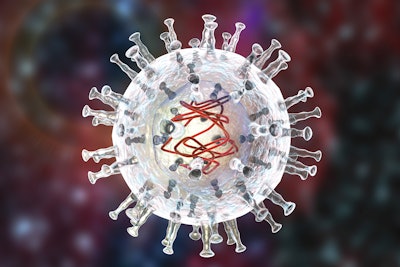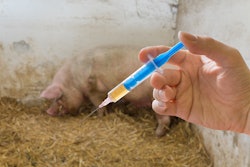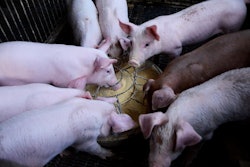
An explosion of research into the African swine fever (ASF) virus genome should help scientists produce new, viable vaccines for the disease in the years to come, according to a review by a prominent scientist within the field.
Two vaccines, both created by the U.S. Department of Agriculture (USDA) by deleting genes within live ASF virus, are licensed for use in Vietnam and being tested in other countries, including the Philippines and the Dominican Republic, according to Linda Dixon, head of the ASF research group at The Pirbright Institute. But since the current outbreak began in China in 2018, the amount of research and papers published about the virus and its unusually complex genetic structure has increased dramatically — with most of those papers coming out of China, Dixon said.
“We can expect in the next few years other modified live vaccines to become available,” she said, with several candidate vaccines undergoing testing for safety and efficacy.
Dixon summarized research breakthroughs since 2018 in a recent paper for the Journal of Virology. Key advances, she said, include detailed imaging of the protein shell that surrounds the ASF virus, which has helped scientists identify antibodies that might better adhere to the virus, reducing the risk of infection.
Recent research has also increased scientists' understanding of how the virus enters and replicates within cells, which has led to greater understanding of why antibodies produced by the immune system to fight the virus are not always effective at preventing infection. Other studies have identified genes within the virus that are central to its replication processes, and have increased scientists' understanding of a group of ASFV genes that inhibit the pigs' natural defenses against infection, according to Dixon.
“The accumulation of data on whole genome sequences and encoded proteins has provided information to investigate which (genes and proteins) are most important in inducing protection in pigs against challenge with virulent viruses,” she said.
While research during the past six to seven years has dramatically increased knowledge of the virus, the safety of live ASF vaccines remains an issue, because the vaccine may revert to virulence or recombine with other circulating strains of the virus. The development of diagnostic tools to help distinguish naturally infected pigs from pigs that have received a vaccine that reverted to virulence would help researchers monitor the success of ongoing vaccination campaigns, Dixon said.
Other types of vaccine — such as those that contain just pieces of the virus instead of the whole, live virus — could prove safer but have not yet proven effective in triggering a protective immune response in pigs, Dixon said.
Although budget cuts initiated by the Trump administration have ended funding for some ASF research in the U.S., Dixon said she is not aware of any similar cuts in Europe or Asia, suggesting the aggressive pace of research on the virus should continue. Research funds in Africa, Dixon said, have been impacted by cuts to international aid in the U.S.

















